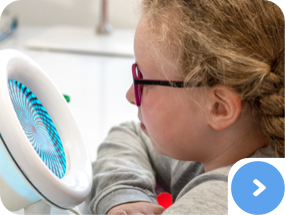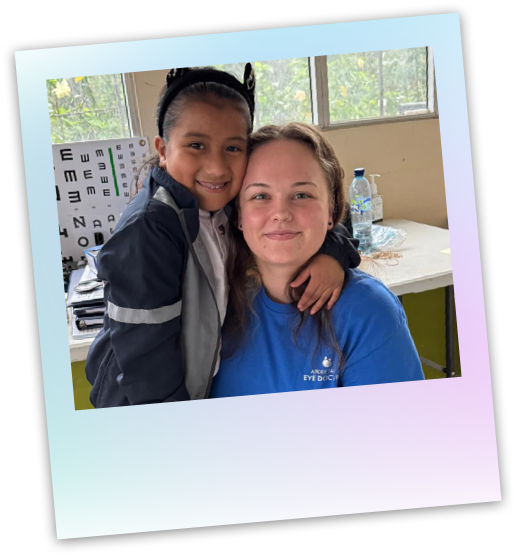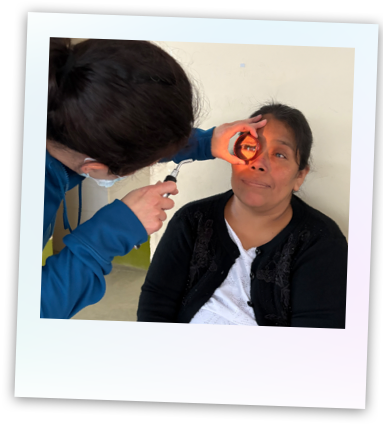80% of learning is visual, which is why optometrists try to stress the importance of eye exams for kids. But as a parent and optometrist, I think we’re focusing too much on a single facet of a multi-faceted issue.
The reality is that vision affects your child in every area of their life, not just school. Eyesight can affect your child’s mood, communication skills, movement, and even their ability to socialize with other kids.
Vision problems often go undiagnosed in kids. And if a child’s grades aren’t suffering, the adults in their life may not even consider that visual health might be a factor. Parents need to understand how an undiagnosed vision problem could affect a child outside the classroom and why it’s important to detect and treat these issues as early as possible.
How Vision Problems Manifest in Kids
- Lack of concentration
- Behavioural problems
- Poor athletic performance
- Sitting too close to the TV
- Squinting
- Frequent headaches
- Closing one eye when reading or watching TV
- Tilting their head to one side
Challenges That Visual Problems Can Create

Hand-Eye Coordination
Some vision issues stem from a lack of binocular vision; the eyes’ inability to work together to create a single cohesive image. We need visual information from both eyes to develop depth perception and spatial awareness.
Kids without binocular vision may struggle with games and sports. For example, it’s difficult to catch a ball when your brain can’t accurately determine how far the ball is or how fast it’s coming. Their poor hand-eye coordination can cause a child to seem clumsy or accident-prone, and could even lead to injuries. For example, a lack of depth perception could cause your child to misstep on the stairs, causing a nasty fall.
Accidental Exclusion
We often don’t realize it, but a lot of activities rely on a child’s visual skills. 3D movies are a favourite among young kids. But without strong binocular vision, 3D movies don’t look three-dimensional, they just look blurry.
Likewise, virtual reality and augmented reality games and activities are pretty popular, but if a child’s eyes can’t focus on near objects, they can’t experience the fun like all the other kids.
This sort of accidental exclusion isn’t necessarily unique to technology, either. Without good depth perception or spatial awareness, a child can find it difficult to kick a ball, aim a nerf toy, or even react fast enough for games like Slapjack.
Trouble Making Friends
Today’s kids are more educated about bullying than any other generation. Having said that, we hardly live in a post-bully society. Unfortunately, bullies still exist, and they’ll find any excuse to torment a target.
Visually impaired people are more likely to become victims of bullying. While the classic insult “four-eyes” does immediately come to mind, kids aren’t necessarily victimized because they need glasses or visual aids. It’s more likely that other issues like poor coordination, accidental exclusions, and poor athletic or academic performance culminate, singling a child out as an easy target.
You Have to Look at the Whole Picture

Vision Problems Can Be Comorbid
When a condition is comorbid, it means that condition is closely linked to other issues, disorders, or diseases. Many neurological and genetic conditions are comorbid with vision problems. For example, kids with ADHD, Autism Spectrum Disorder, learning disabilities, and Down Syndrome are often diagnosed with vision problems.
In fact, almost ⅔ of kids with vision impairment also have another disability. Unfortunately, the symptoms of vision problems can overlap with the symptoms of other conditions, which makes vision issues harder to spot.
For example, if a child has been diagnosed with ADHD, their parents are unlikely to question why they struggle to concentrate on homework. The fact that an undiagnosed vision problem could compound the issue may not occur to them.
Visual Health is Part of Physical, Mental, & Emotional Health
I think some people tend to view eye health as a bonus rather than an actual need. The truth is that, without the appropriate treatment and management strategies, vision impairment could impair your child on every level, from learning to socialization. It’s absolutely vital that we prioritize our kids’ visual health by watching carefully for any signs of an issue.
One of the best things you can do for your child is to schedule annual eye exams for them, particularly with an optometrist that has lots of experience with kids. It could quite literally change the way they experience the world.

























